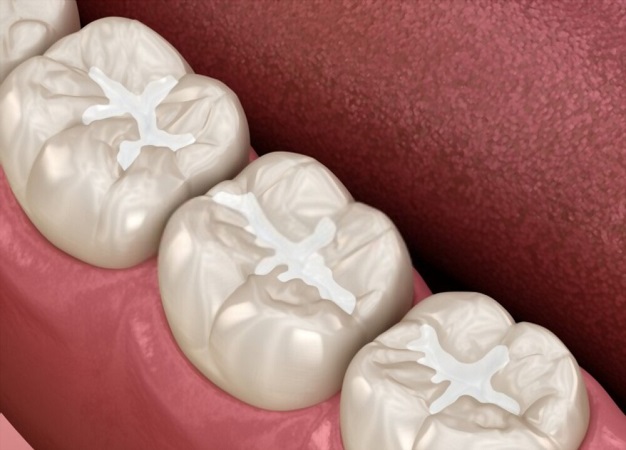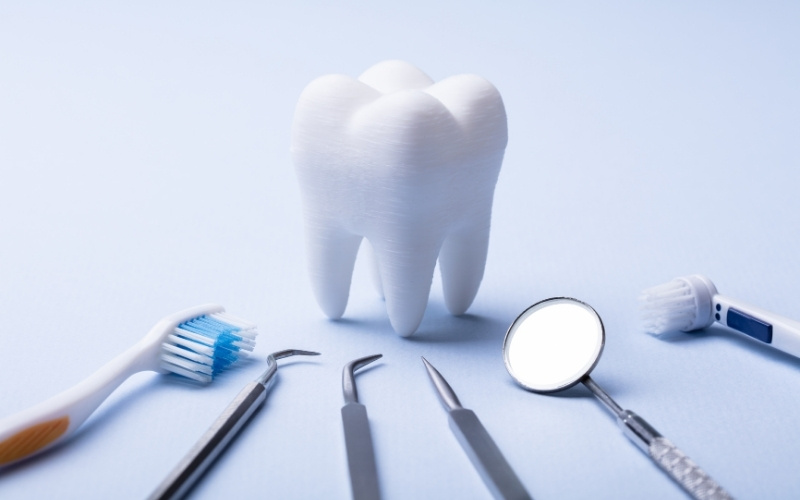
Maintaining oral health is vital for overall well-being, and one of the most effective preventive measures available today is dental sealants. This simple yet powerful treatment can protect your teeth from decay and help you avoid costly dental procedures in the future. In this blog post, we will delve into what dental sealants are, how they work, their benefits, and why investing in them can save you from expensive dental work down the line.
What Are Dental Sealants?
Dental sealants are thin, protective coatings applied to the chewing surfaces of the back teeth, specifically the molars and premolars. These areas have deep grooves and pits that are difficult to clean effectively, making them susceptible to tooth decay. Sealants act as a barrier, preventing food particles and bacteria from settling into these grooves and causing cavities.
How Do Dental Sealants Work?
The application of dental sealants is a straightforward procedure that typically requires only one visit to the dentist. Here’s how it works:
- Preparation: The tooth surface is thoroughly cleaned and dried to ensure proper adhesion of the sealant.
- Application: The sealant material, usually made from a plastic resin, is painted onto the tooth’s chewing surface. The dentist may use a special light to harden the sealant quickly.
- Final Check: After application, the dentist will check the sealant to ensure it has set correctly and does not interfere with the patient’s bite.
Once applied, dental sealants can last several years, providing long-term protection against cavities.
Who Should Get Dental Sealants?
Dental sealants are particularly beneficial for children and teenagers, as they are at a higher risk for developing cavities during their formative years. According to the Centers for Disease Control and Prevention (CDC), sealants can reduce the risk of cavities by up to 80% in the first two years after application. However, adults can also benefit from sealants, especially if they have deep grooves in their molars or a history of tooth decay.
Benefits of Dental Sealants
- Cost-Effective Prevention: The cost of applying dental sealants is significantly lower than the cost of treating cavities. A single dental sealant application can prevent multiple future fillings, saving you money on dental bills.
- Simple and Quick Procedure: The process of applying sealants is quick and painless. Most patients can have sealants applied during a routine dental visit without the need for anesthesia.
- Long-Lasting Protection: Once applied, dental sealants can last several years with proper oral care. Regular dental check-ups will ensure that the sealants remain intact and effective.
- Enhanced Oral Hygiene: Sealants make it easier to maintain good oral hygiene by preventing food particles and bacteria from accumulating in the grooves of the teeth.
- Reduced Anxiety for Children: By preventing cavities, dental sealants can help reduce the likelihood of painful dental procedures in children, leading to less anxiety around dental visits.
Maintaining Dental Sealants
While dental sealants provide excellent protection, they are not a substitute for regular oral hygiene practices. Here are some tips for maintaining sealants and overall dental health:
- Regular Brushing and Flossing: Continue to brush your teeth at least twice a day with fluoride toothpaste and floss daily to maintain good oral hygiene.
- Routine Dental Check-Ups: Visit your dentist regularly for check-ups and cleanings. Your dentist will monitor the condition of your sealants and recommend reapplication if necessary.
- Limit Sugary Foods and Drinks: Reducing your intake of sugary foods and beverages can help prevent tooth decay and extend the life of your sealants.
- Avoid Hard Foods: Be cautious when eating hard foods that may chip or dislodge sealants.
Common Misconceptions About Dental Sealants
Despite their benefits, there are several misconceptions about dental sealants that can deter people from considering this preventive measure:
- Sealants Are Only for Children: While they are most commonly applied to children and teenagers, adults can also benefit from dental sealants.
- Sealants Replace Regular Dental Care: Some believe that sealants eliminate the need for brushing and flossing. In reality, they are a complementary measure and should be combined with good oral hygiene practices.
- Sealants Are Not Effective: Some individuals may doubt the effectiveness of sealants. However, numerous studies have shown that sealants significantly reduce the risk of cavities in sealed teeth.
Dental sealants are a simple and effective preventive treatment that can save you from costly dental work in the future. By creating a protective barrier against tooth decay, sealants help maintain your oral health and enhance your quality of life. If you or your child are at risk for cavities, consider discussing dental sealants with your dentist during your next visit. Investing in this preventative measure could be one of the best decisions for your oral health, ensuring a brighter, healthier smile for years to come.
In summary, dental sealants are an invaluable tool in the fight against tooth decay, offering cost-effective protection and peace of mind for patients of all ages. Don’t wait for decay to develop; take proactive steps to safeguard your oral health today.


